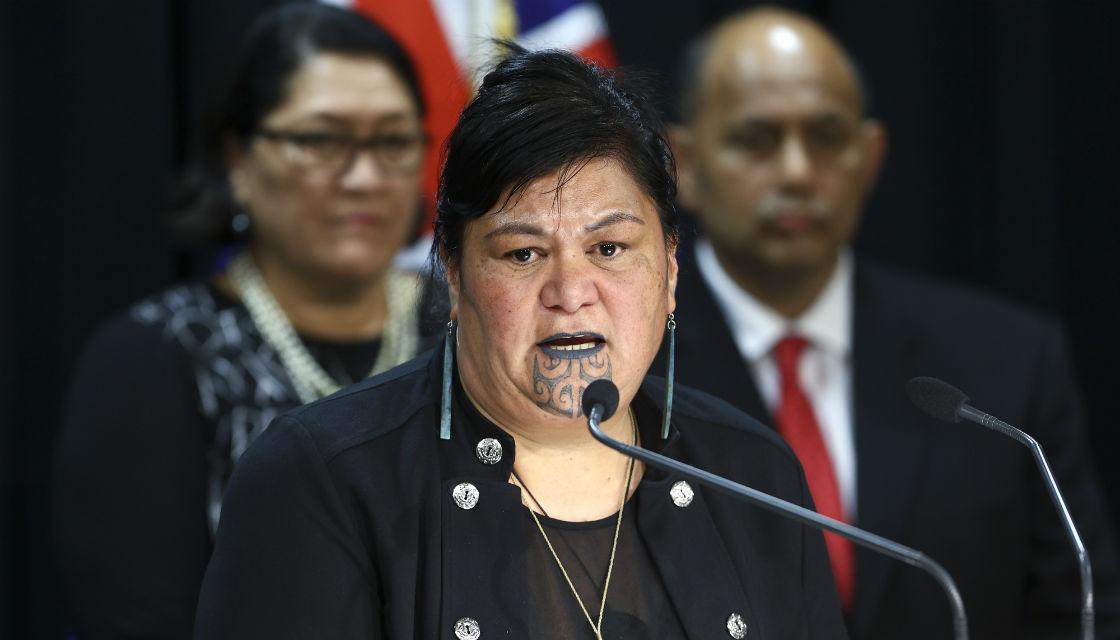
New Zealand has joined a group of countries advocating for media freedom, something it describes as increasingly under threat by governments using the COVID-19 pandemic as a pretext to restrict free expression.
The Media Freedom Coalition was formed in July 2019 with the purpose of supporting journalists, ensuring the free exchange of information and combating restrictions placed on media. Among the group's 46 member nations is Australia, Canada, the United Kingdom and the United States.
All members must agree to a global pledge on media freedom, which lays out the group's principles and obligations, and commit to meeting annually to renew commitments and address emerging "threats and opportunities".
Aotearoa is the coalition's latest member, with Foreign Affairs Minister Nanaia Mahuta telling Newshub a "free, independent and pluralistic media based on freedom of information and expression is a core element of a functioning democracy".
"Joining the Coalition provides a strong statement of New Zealand's support for media freedoms," she said. "Freedom of expression, including media freedoms and the right to participate in democratic processes, is a priority for New Zealand's engagement under our International Human Rights Action Plan."
Mahuta described media freedom as an "increasing human rights issue in a number of concerning country situations" and that it has been "increasingly challenged with some governments using the pandemic as a pretext to restrict free and independent media."
The use of emergency powers and the COVID-19 backdrop by countries to impose new regulations limiting media expression has been well documented over the last year by the International Press Institute (IPI).
"Few global events in recent decades have had such an immediate and significant effect on press and media freedom as the COVID-19 pandemic," it wrote in December.
The IPI says that as countries attempt to quash "fake news" and misinformation about the pandemic and vaccines, some have rushed legislative changes, raising concerns "that vaguely defined laws would be used to censor critical reporting".
As of Wednesday, it has tracked 620 press freedom violations linked to COVID-19, with the latest case of concern being new legislation in Malaysia penalising those who create, publish or circulate "fake news".
The legislation, which the government says will tackle virus misinformation, was introduced under emergency powers as the Malaysian Parliament is currently suspended due to the pandemic.
"Malaysia's new 'fake news' law, which was conveniently ushered into law using emergency powers and therefore bypassing democratic checks and balances, represents a severe threat to journalism and free expression," IPI deputy director Scott Griffen said.
"Lacking any proper safeguards, the new regulation is an invitation to disproportionate interference with journalists' right to publish news and information that is critical of the government or that clashes with official viewpoints."
Back in April, the Media Freedom Coalition issued a statement calling on countries to remember the importance of the media during public health threats.
"We are concerned by the efforts by some states to use the crisis to put in place undue restrictions on a free and independent media. Such actions deny societies critical information on the spread of the disease and undermine trust in responsible government."
Members of the coalition regularly release statements calling out countries for their treatment of the media. In January, a number of members expressed concern with the sentencing of a Chinese journalist who reported on COVID-19 in Wuhan in 2020. It called for her and other journalists to be released from custody.
Among those welcoming New Zealand into the coalition is the United Kingdom's Foreign Secretary Dominic Raab, who tweeted: "Our global movement & collective voice to #DefendMediaFreedom is further strengthened today as we welcome New Zealand to the Media Freedom Coalition. Together, we campaign to protect journalists & hold to account those who attack them."
The Reporters Without Borders (RWB) Press Freedom Index in 2020 ranked New Zealand 9th out of 180 countries for media freedom, down two positions from 2019. The RWB's main concerns were the "profit imperative" of media groups and issues with the Official Information Act (OIA).



